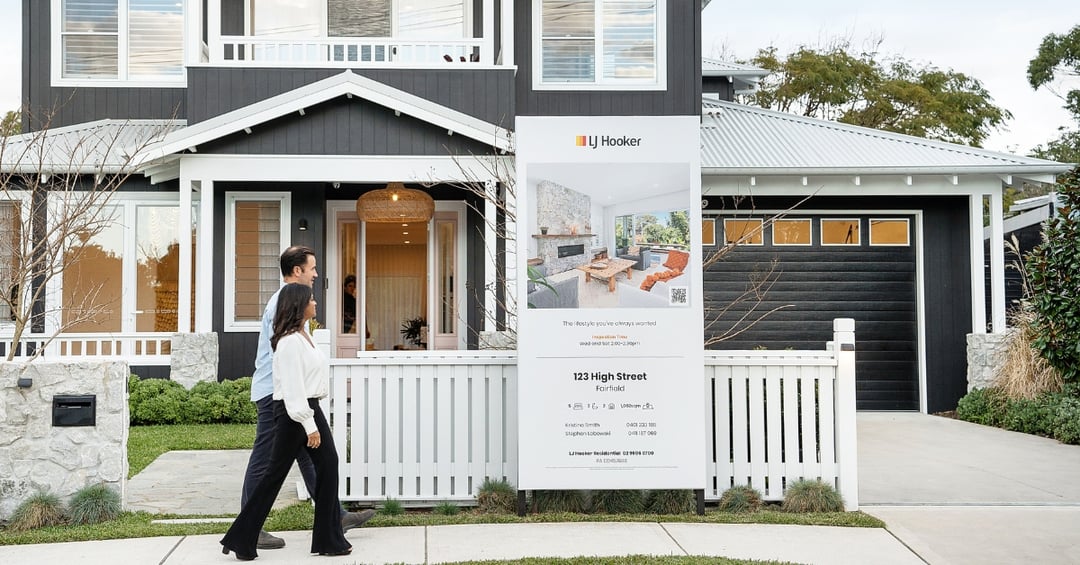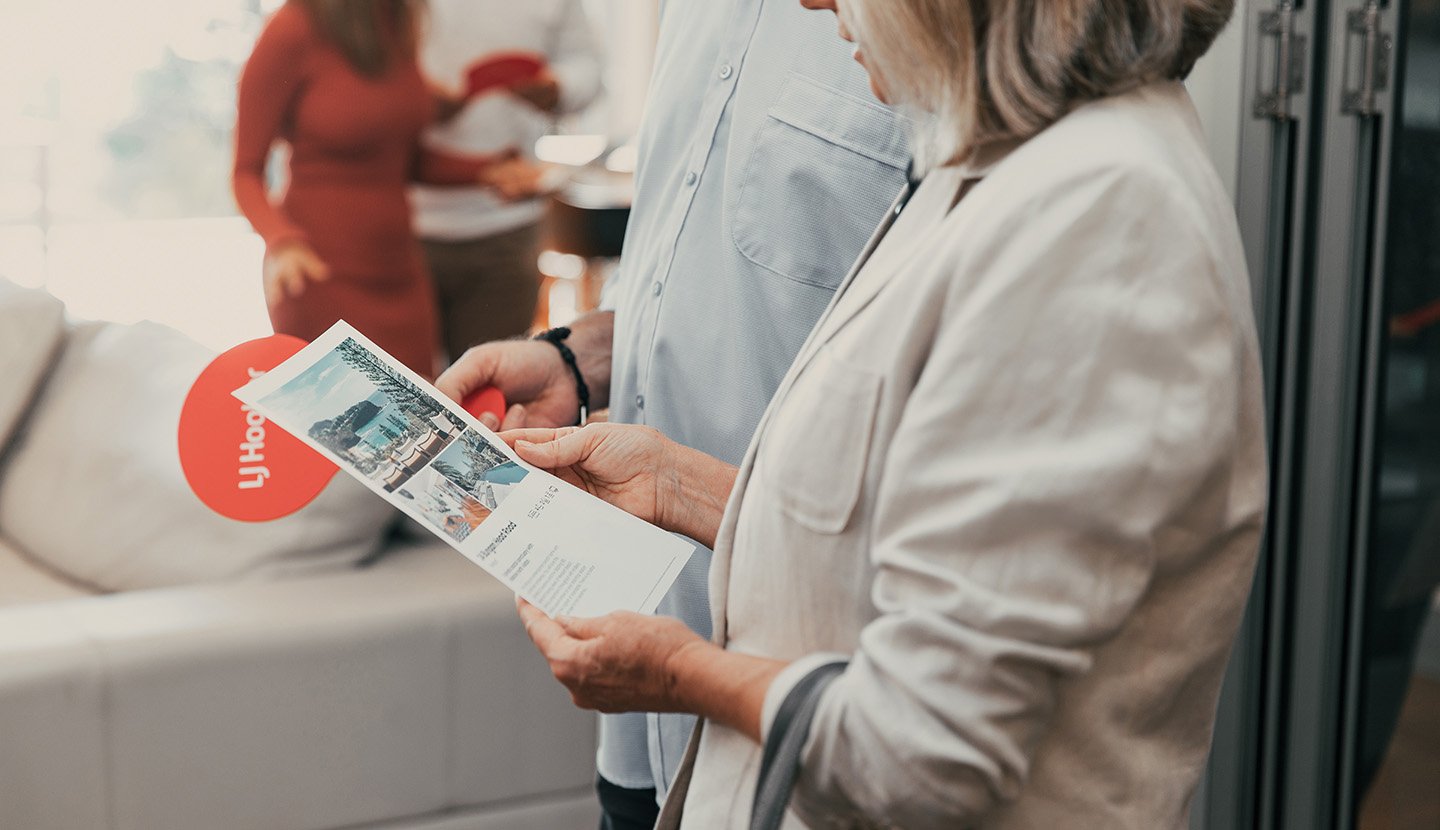Cost of Buying Real Estate

Understanding the different costs involved when buying a new home is important as it all adds up.
Before you look for a brand new home, you’ll need to prepare yourself financially. Buying a new home is expensive, so it’s important you plan ahead as best as you can.
Deposit
Deposits are usually at least 5 percent of the home’s overall cost, depending on the type of loan you obtain.
To determine how much your deposit will be, consider:
- The average home price of the area in which you wish to buy.
- The type of loan you wish to get.
- The amount you wish to borrow through your loan.
As a current homeowner, you may be able to access the equity you have already built up in your loan to cover the deposit. If there isn’t enough equity, you’ll have to save the deposit yourself.
Stamp duty
Stamp duty is a charge that is applied to the sale of residential property by state governments. It is not a fixed cost across the country - it differs in each state and territory so make sure you find out about the stamp duty costs for your area.
The cost is usually calculated based on the price of the home you purchase, but each state has its own system.
The rate often differs depending on several factors:
- Whether you are purchasing vacant land or a brand new house.
- If you are using the home as your main place of residence.
It can be complicated to work out stamp duty on your own, as there are many rates that apply to different house prices. Consult an online calculator to help you determine the cost.
Lenders Mortgage Insurance (LMI)
If you want to borrow more than 80% of the property purchase price you will normally be charged Lenders Mortgage Insurance. This insurance payment covers the lender in the event that you can’t pay the home loan back.
Get your budget and savings in order well before you buy to avoid this hurdle! The cost of LMI will vary depending on how much you borrow and the type of loan you select but it will be approximately $10,000.
Building insurance
When you’re spending your life savings on purchasing property it makes sense to protect it. While building insurance is a compulsory requirement from your lender, there are other insurance policies that you should consider.
For example mortgage protection insurance will ensure your mortgage repayments are met should you fall seriously ill. Income protection insurance will also help pay the bills should you be hit by an accident, major trauma or illness.
Legal help
Buying a home is fundamentally a legal process so the help of legal experts, namely conveyancers and solicitors is critical. They will be an invaluable part of property negotiations and can help you through the paperwork. However, remember they will charge a fee, so make sure you factor this in. Some conveyancers will charge a flat fee while others will charge a sliding fee based on the properties sale price. Make sure you discuss fees and charges before you engage their services.
Building, pest and strata
Having a building and pest inspection carried out on any property is usually a requirement by the lender but they are well worth investing in regardless.
If you are considering purchasing a unit or apartment, it is also in your best interest to have a strata inspection conducted - that is a report on the assets, liabilities and financial position of the apartment complex.
While having a building, pest or strata inspection completed on the potential property will cost you initially, it could be an invaluable safeguarding against buying a lemon.
Expect to pay around $400 for a building or pest inspection and around $200 for a strata report.
Council rates and strata fees
Once a seller hands their property over, you immediately inherit all of the attached council and strata fees.
While both owners of houses and units are obliged to pay council rates, it is only owners of units or apartments that will have to incur strata fees.
Strata fees cover the property’s grouped maintenance and building insurance fees and are collected by the building's owners or manager. These fees are ongoing costs that will continue to absorb your finances, generally quarterly, even after your initial property purchase payment, so it’s important to incorporate these into your ongoing budget.
The scope of strata fees will vary considerably depending on the age of the building, facilities, and location but you should expect to pay around $70 to $80 for the lodgement of application.
Having a little bit extra
You may have done all your research and been prepared for all the major hidden extras of buying a property, but you should always set aside a little bit extra for those expenses you are not expecting. Expenses like moving fees, utility connections, mail redirection, etc.
Everything adds up
It is really important to consider all the extra costs that can/will apply to your property purchase otherwise the settlement time can be extremely stressful.
As a general rule if you factor in an additional 5-7% of the purchase price, on top of your deposit it should be approximately enough to help you cover the hidden extras.
Understanding the costs of buying a home is important as they may influence your decision to buy a certain townhouse or apartment, so it's best to determine how much this is before you commit to a property.
Home Warranty
While building insurance covers damages, a home warranty can protect your investment from unforeseen mechanical failures in major systems like plumbing, electrical, and HVAC. Considering a home warranty can be a wise decision, especially for older properties, providing added financial security against unexpected repairs. Home Warranty Insurance is compulsory (with some exceptions) for residential buildings over a particular value (which varies from state to state). For example, in NSW, home warranty insurance is purchased by the builder – but the premiums get passed onto the homeowner.
Government Grants and Incentives
Exploring potential government grants or incentives for first-time homebuyers can significantly impact your overall costs. Various regions offer programs to assist buyers, such as the First Home Owners Grant. Researching and leveraging these opportunities can make homeownership more financially feasible.
Maintenance
Unless you’re purchasing off the plan or building your dream home, there might be some minor repairs and maintenance needed after you have moved into your new home. Depending on the size and severity of the repairs required, you may have to have some money put aside to cover these costs. Similarly, an often overlooked expense when buying a new home is the cost of landscaping. You might be surprised to find out how much gardening equipment is to maintain your new lawn and garden.
Title Insurance
Often overlooked, title insurance is a safeguard against potential legal issues related to the property's title. It protects you from unforeseen claims that may arise from previous ownership disputes, unpaid taxes, or undiscovered encumbrances. While not mandatory, having title insurance can provide peace of mind during the property transfer process.
Land Tax
Land tax is a state-based tax levied on the unimproved value of land. It is an annual tax imposed on the owners of land, and the rates and thresholds vary between states and territories (except the Northern Territory). The rate paid depends on the total value of taxable land according to site values prepared by the local council. As of the latest Budget Update, the Victorian Government will be replacing stamp duty on commercial and industrial property transactions with an annual property tax. The change will be implemented from 1 July 2024.
Other expenses
There are several other costs associated with buying your property:
- Refinancing fees for your mortgage.
- Pre-inspection costs.
- Legal services.
- A valuation of the home.
If you’re moving from a house into a unit or apartment then you’ll need to consider strata fees. This is an ongoing cost that covers the common areas of the apartment building, such as elevators, hallways, and pools.
This figure may influence your decision to buy a certain townhouse or apartment, so it’s best to determine how much this is before you commit to a property.
While these are not all significant figures individually, they can add up to a sizeable sum. Be sure you can pay for them as they arise.
To fully understand the costs associated with buying a property in your state make sure you read our articles on buying real estate in your state or territory.
DISCLAIMER - The information provided is for guidance and informational purposes only and does not replace independent business, legal and financial advice which we strongly recommend. Whilst the information is considered true and correct at the date of publication, changes in circumstances after the time of publication may impact the accuracy of the information provided. LJ Hooker will not accept responsibility or liability for any reliance on the blog information, including but not limited to, the accuracy, currency or completeness of any information or links.



